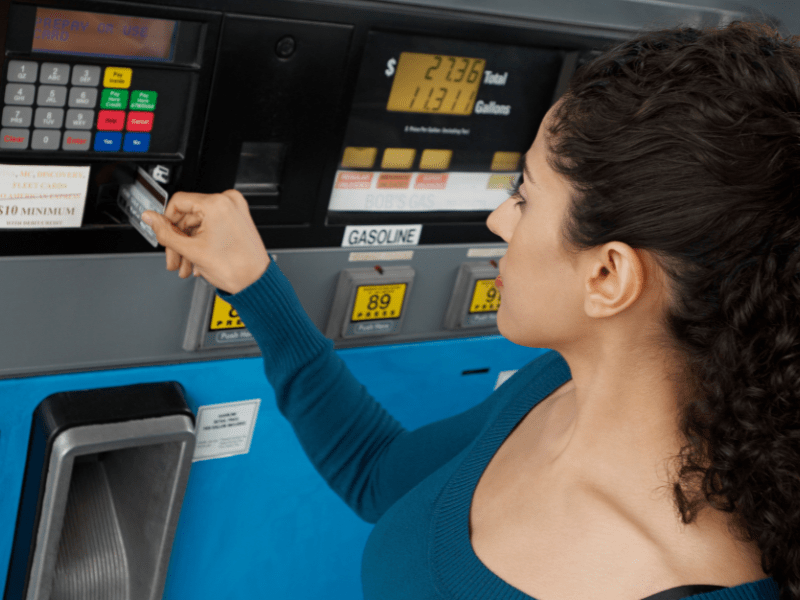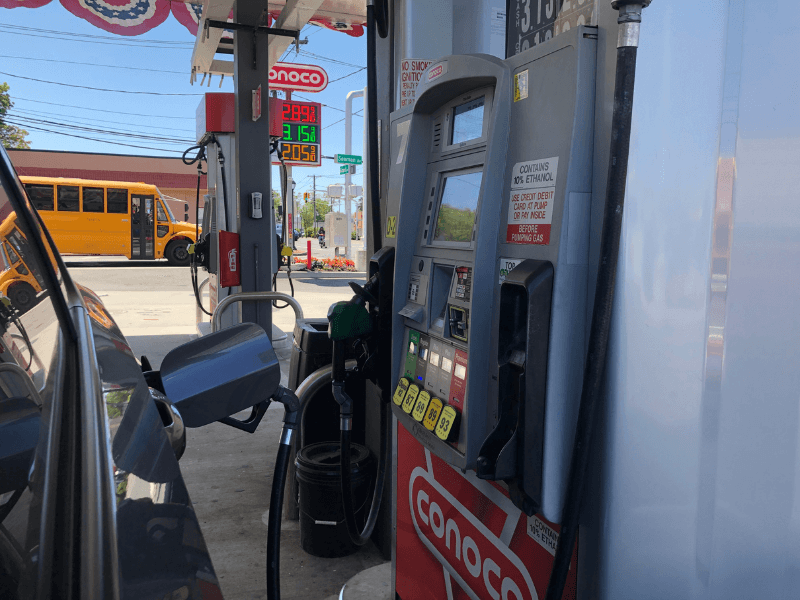
We all have our routines, especially when it comes to filling up at the gas pump. But have you ever stopped to think about why you choose the fuel you do and how it affects your beloved vehicle’s performance? I confess it’s something I never really pondered until I bought my 2021 Acura RDX. The dealer suggested premium gas, and that got me questioning my gas game. Should I be using premium, or have I been missing something?
Gasoline is a necessary evil for many of us, even if we’re driving fuel-efficient hybrids. It’s not just the gas-guzzling road beasts that rely on fossil fuels. We all face the pump prices, but the type of gas we select can significantly impact our wallets. Premium gas is pricier, and while it’s said to be good for your car, is it always worth the extra cost? Let’s dive into the premium vs. regular debate.
The Gasoline Menu: Regular, Mid-Grade, or Premium?
Just like choosing a meal, you have options when feeding your car, with regular, mid-grade, and premium gas on the menu. These different grades contain varying levels of octane, a crucial component for your vehicle’s performance and longevity.
Octane is one of those hydrocarbon molecules in gasoline that’s vital for every car. It’s more stable than other hydrocarbons, which is key because it prevents premature ignition in your engine. In essence, it ensures your engine doesn’t knock or ping, potentially causing damage.
Now, most gas stations categorize fuel into three grades:
- Regular gas, with the lowest octane level, is usually around 87.
- Mid-grade gas, sitting at an octane level of 89.
- Premium gas boasts the highest octane levels, ranging from 91 to 94.
Different stations might use fancy names like “ultra” or “ultimate,” but the octane level is what truly matters.
Choosing the Right Fuel for Your Car
Before you start dreaming of your car transforming into a rocket with super-premium gas, let’s set the record straight: it’s more about maintenance than a performance boost. High-performance vehicles demand premium gas because it’s gentler on their engines. But for us regular folks cruising in typical 4 or 6-cylinder cars, it’s not a game-changer.
When Does Your Car Need Super Premium Gas?
Unless you’re zipping around in a Lamborghini, Porsche, or a high-end speed demon, super-premium gasoline is not in your car’s destiny. These fuels are tailor-made for engines with extreme compression, designed for those adrenaline-pumping 0-60mph sprints that we usually only see in movies.
So, should you be using premium gas for your vehicle? It can get a bit confusing. Some mid-range cars, like Honda Accords or Toyota Camrys, may suggest using premium gas in their manuals. However, it’s important to note that this is due to high compression engines, but not on the same level as high-end performance cars.
These high-compression engines are all about squeezing the best performance out of smaller engines, giving you the speed of a 6-cylinder in a 4-cylinder car. Premium gas helps because it’s less prone to pre-ignition, ensuring your engine runs smoothly.
Does Premium Gas Boost Performance?
In most cases, premium gas won’t significantly enhance your car’s performance, especially if your engine isn’t built for higher-octane fuel. Most cars do just fine with regular gas. Higher-performance fuels are mainly intended for vehicles already designed for high performance.
The only scenario where you might consider premium gas in a regular vehicle is when you’re hauling heavy loads up steep hills for extended periods. Even then, it won’t exactly supercharge your engine, but it might offer some extra protection under extreme conditions.

Is Regular Gas the Best Choice?
It very well might be. Premium isn’t necessarily better. Even if the dealer suggests it, it might not be the right fit for you or your car. Your choice of fuel is a lifestyle-based decision, much like your diet. Is your car a bodybuilder, or is it more of a morning jogger? If you do opt for regular gas, make sure it’s from a top-tier gasoline company like Conoco or BP, as they have fewer detergents, which is easier on engines.
Another factor to consider is the cost. Premium gas can be 20-30 cents more per gallon, which adds up over time. For regular cars, this added cost doesn’t necessarily translate to better performance. So, unless you’re funding a wealthy oil executive’s vacation, regular gas is not only fine but also your best value and smartest choice for your daily commute.
As for me, I do use premium gas in my Acura RDX, but it’s all about personal preference. After all, why invest in a luxury car if you can’t afford to pamper it a little, right? 😉

Kim is a Black millennial, working full-time in managed healthcare, all while juggling the roles of a wife and a hands-on mom to her two daughters, her rainbow babies. She is the proud owner of Beauty and the Bump NYC, a platform where she shares her perspective on all the things that bring joy to her life: family, travel, cars, food, and more.
Recognizing the need to create a dedicated space for her automotive content, Kim established WhatDrivesKim.com. Here, fellow millennial moms can find authentic and valuable insights into all things car-related. Kim’s goal is to provide the real deal on cars, helping moms make informed decisions about their vehicles.
As a contributor to A Girl’s Guide to Cars, Kim extends her passion for cars by offering helpful tips and car reviews from the unique perspective of a modern working mom. With Kim, you can trust that you’re getting practical and relatable advice about the world of automobiles.



